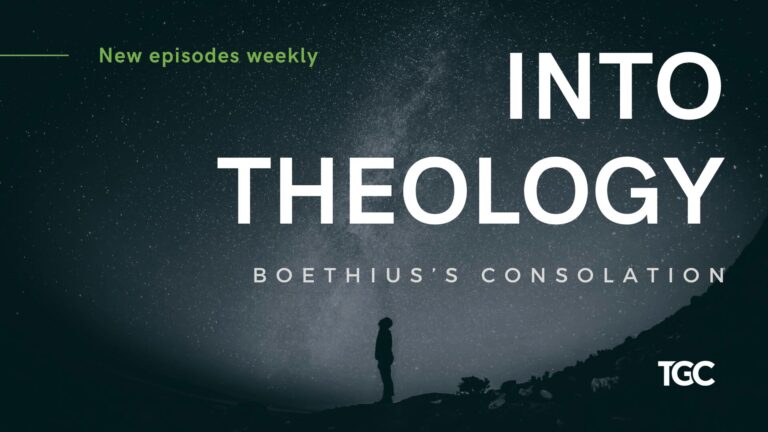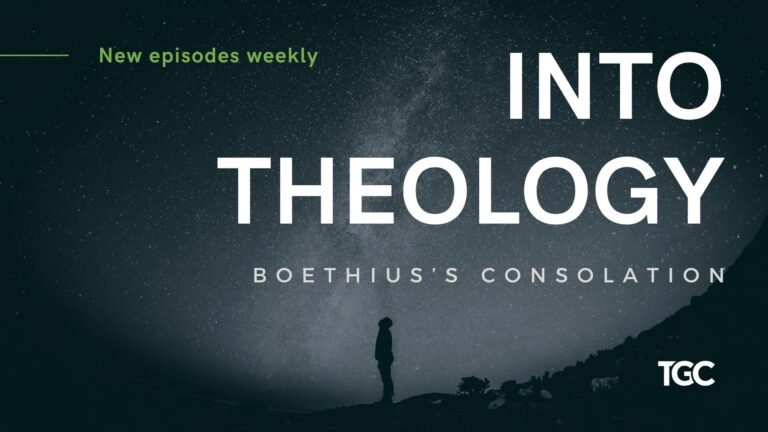One of the most difficult biblical doctrines to accept is the doctrine of the wrath of God. Despite this difficulty, the Bible is clear. The Old and New Testaments affirm that sin brings wrath from which we must be saved.
As John so economically puts it, “Whoever believes in the Son has eternal life; whoever does not obey the Son shall not see life, but the wrath of God remains on him” (John 3:36). The more we consider this teaching in its biblical context, the less difficult it becomes to accept. And the more we learn about the amazing grace of God who saves us from the wrath to come.
The prophet Micah illustrates this reality well. In Micah 7 God not only forgives sins and removes wrath, but he also advocates for the salvation of his people on the basis of his mercy and promises.
Sin brings God’s wrath
Rejoice not over me, O my enemy;
when I fall, I shall rise;
when I sit in darkness,
the Lord will be a light to me.
I will bear the indignation (lit: rage [זעף]) of the LORD
because I have sinned against him,
until he pleads my cause and executes judgment for me.
He will bring me out to the light;
I shall look upon his vindication. (Micah 7:8–9)
Micah here personalizes the experience of Israel. He stands in place of the people as he sings his dirge that bursts into hope.
Micah, as all Israel does, bears God’s rage because he/they sinned against God. But because God himself pleads Micah’s case, then the prophet knows his judgment is assured. He will be vindicated in the court of law.
Light here signals the life of God. Although Micah falls, he will rise. Although he may go to darkness, he will see the light, who is the Lord himself (v. 8). This divine light means Israel’s vindication (v. 9). It proves that they have been vindicated.
The word vindication overlaps with the idea of justification—the Hebrew word is tsedekah which means justice. So we may detect an echo of Micah in Paul’s statement that Christ was “raised for our justification” (Rom 4:25).
God himself vindicates sinners
Who is a God like you, pardoning iniquity
and passing over transgression
for the remnant of his inheritance?
He does not retain his anger forever,
because he delights in steadfast love.
He will again have compassion on us;
he will tread our iniquities underfoot.
You will cast all our sins
into the depths of the sea. (Micah 7:18-19)
Because of God’s merciful nature, he pardons sin and does not “retain his anger forever.” Micah has already explained how this happens. In verse 9, he says that God himself “pleads my cause and executes judgment for me.”
When he speaks of a pleading a cause, he builds an analogy using common legal imagery. The prophet Isaiah does much the same. The point is that sin results in legal repercussions. But God will act as both lawyer and judge in the matter. He will plead the case on behalf of his client (us) to remove the sentence of divine rage.
God advocates for his people. He has compassion and casts their sins into the depths of the sea because of his promise (v. 20).
God forgives because of his nature and his promises
You will show faithfulness to Jacob
and steadfast love to Abraham,
as you have sworn to our fathers
from the days of old. (Micah 7:20)
The legal argument that God uses on Micah’s behalf is one of prior case law. Or to be more accurate, God acts according to what he has promised to accomplish through the offspring of Abraham.
God cannot reject Israel forever because he made a promise (Gen 12). And he guaranteed this promise by an oath (Gen 22): “So when God desired to show more convincingly to the heirs of the promise the unchangeable character of his purpose, he guaranteed it with an oath” (Heb 6:17).
While Israel transgressed the bounds and entered into God’s displeasure, God vindicated his people by representing his own people and by citing his immutable promises to his beloved. He showed steadfast love to Abraham and to his offspring. He forgave their sins.
And he casts them into “the depths of the sea” (Micah 7:19).
You can pick a thousand passages in Scripture like Micah 7.
The pattern reappears everywhere: Sin brings wrath. God is love and binds himself to what he loves. So he brings forgiveness. Wrath (justice) and forgiveness (mercy) kiss because of God’s simple nature.
And at the cross, here we see the fullness of God’s justice and mercy in that Christ not only became our mediator and advocate but also our atonement. He became sin for us so that we might become the righteousness of God in him. And now he loves forevermore to plead our case before the Father.
And he has already won the verdict. It is Yes, and amen in Christ for all the promises of God have their Yes in Jesus Christ our Lord.












